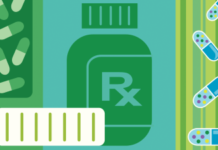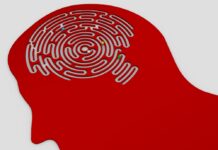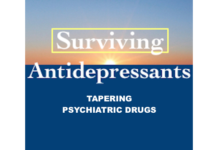How Therapists Can Help With Psychiatric Drug Withdrawal: An Interview With Anne Guy
MIA's Richard Sears interviews psychotherapist Anne Guy about working with clients withdrawing from psychiatric drugs.
SNRIs Added to the List of Drugs with Potential Withdrawal Symptoms
New research suggests that clinicians should exercise caution prescribing SNRIs as first-line treatment for mood and anxiety disorders.
Antipsychotic Dose Reduction Linked To Long-term Improvements In First-Episode Schizophrenia Patients
Careful reductions in dosage levels of antipsychotic medications over time improved long-term rates of recovery and functional remission in patients diagnosed with a first-episode psychosis.
Official Guidelines on Antidepressant Discontinuation Fail Practitioners and Patients
A review of clinical practice guidelines for antidepressant discontinuation from across the English-speaking world reveals major pitfalls.
Tardive Dyskinesia in the Atypicals Era: Is The Risk Any Less Today Than Before?
A few weeks ago, while I was at a birthday celebration, a friend who works in a mental health setting remarked that she was...
What Helps Long-Term Users of Benzodiazepines and Z-Drugs Discontinue?
Current long-term users of benzodiazepines and Z-drugs identify barriers and facilitators for discontinuation.
Withdrawal Symptoms Routinely Confound Findings of Psychiatric Drug Studies
Researchers examine how rapid discontinuation can mimic the relapse of mental health symptoms and confound psychiatric drug studies.
Keys to Successful Discontinuation of Antipsychotic Medication
Qualitative study finds that both internal resources and systemic factors play a role in antipsychotic discontinuation outcomes.
Case Studies Reveal Patient Empowerment Through Tapering Antipsychotics
A new study shows how different patients respond to tapering antipsychotic medication under expert guidance, highlighting personal empowerment and the complexities of withdrawal.
Gradual Tapering Recommended for Antidepressant Discontinuation
A new literature review reinforces the need to “down-titrate” or taper antidepressants, especially drugs like Celexa and Paxil.
Recovery by Taking Psychiatric Drugs versus Recovery by Coming Off of Psychiatric Drugs
German author and activist Peter Lehmann presents "Recovery by Taking Psychiatric Drugs versus Recovery by Coming Off of Psychiatric Drugs" at the 2012 International Society for Ethical Psychology and Psychiatry (ISEPP) Conference in Philadelphia, PA.
Internet Forum for Tapering Psychiatric Drugs Provides Novel Insights
After 15 years, the founder of SurvivingAntidepressants.org, Adele Framer, shares what she has learned about the science of withdrawing from psychiatric drugs.
New Antidepressant Shows Little Benefit, Significant Risks
Patient Drug News advises avoiding use of the antidepressant Vortioxetine (also called Brintellix or Trintellix), because the most recent evidence from the FDA shows...



















